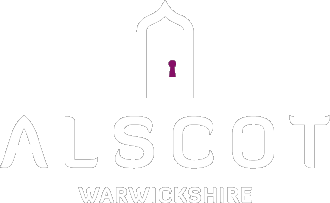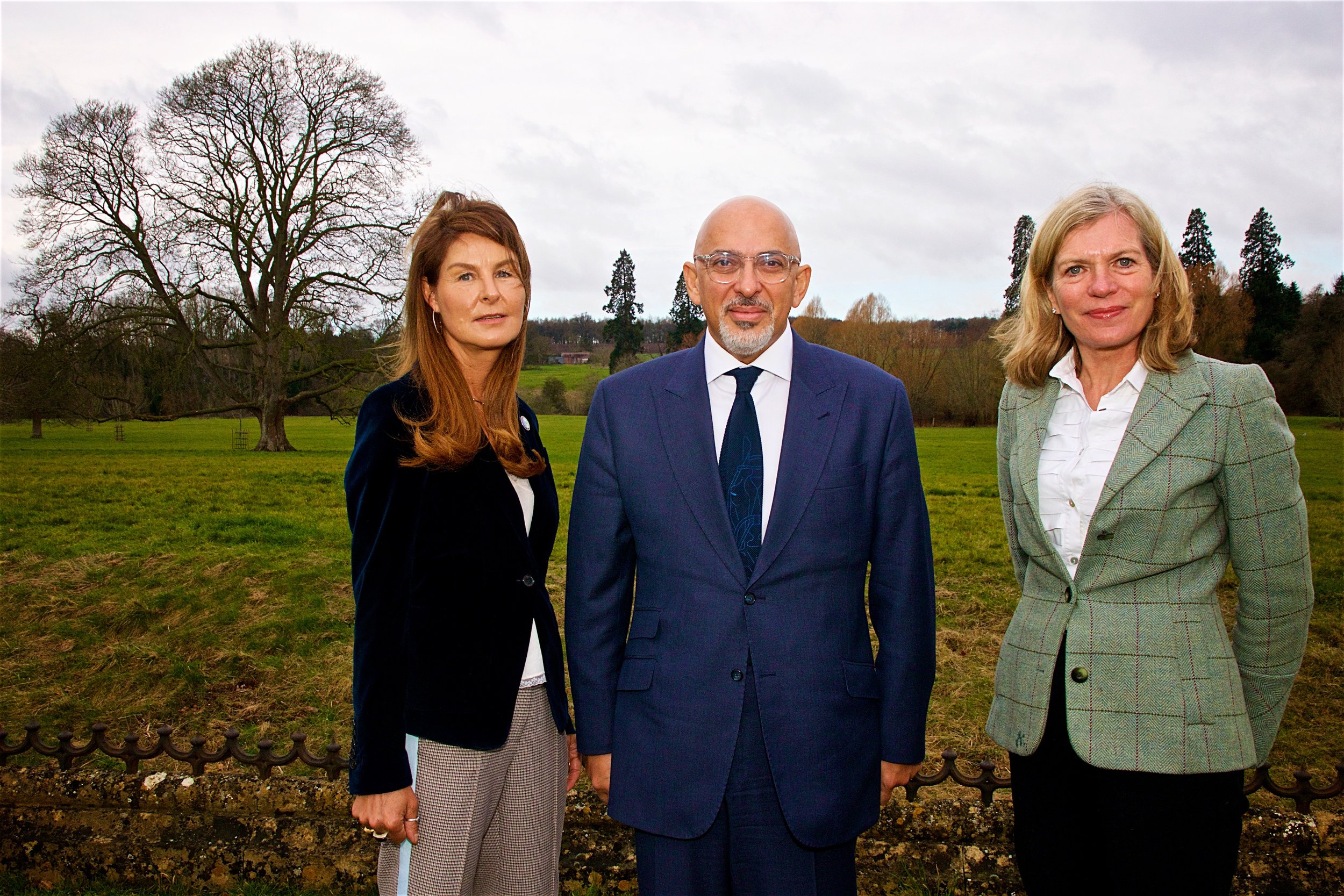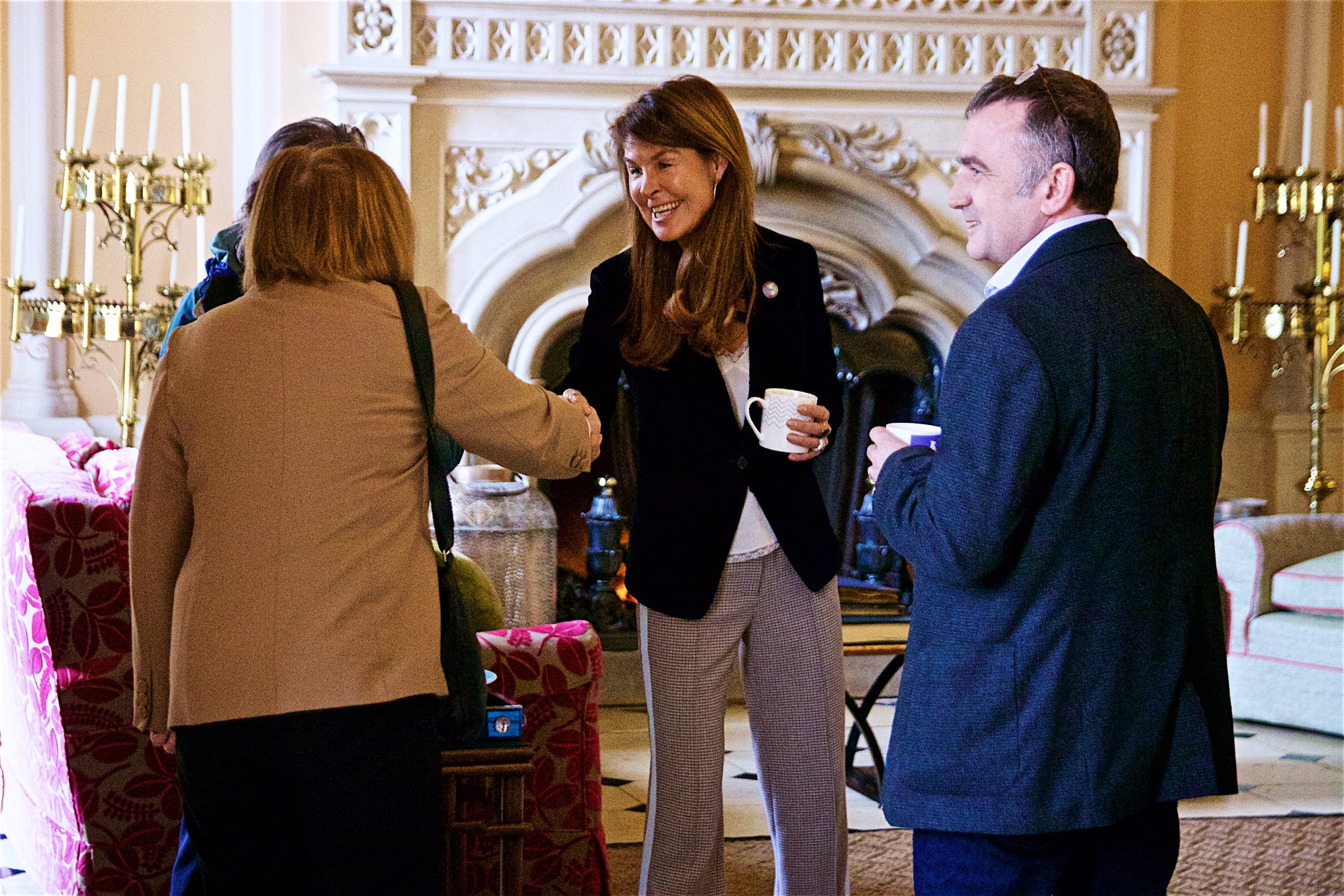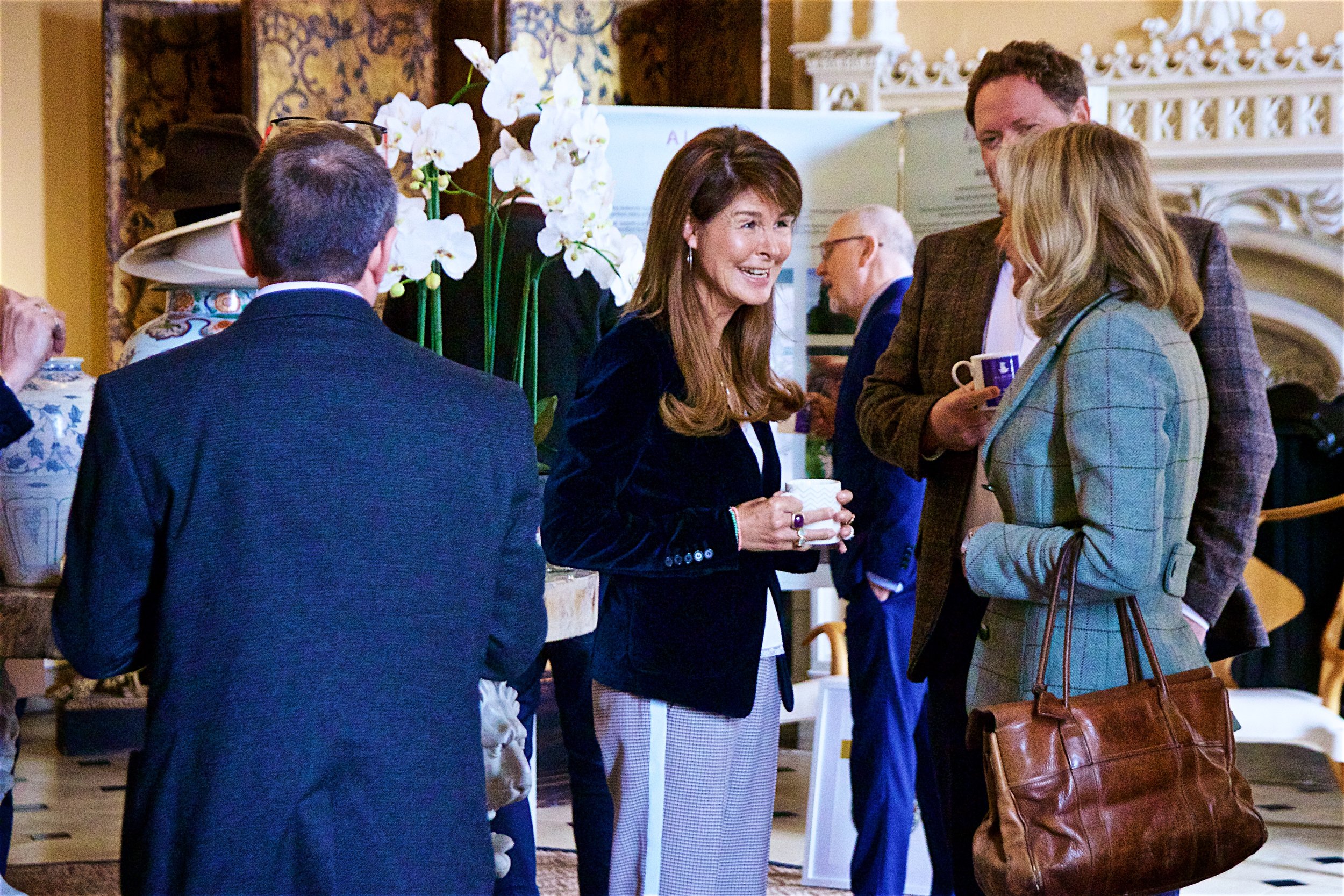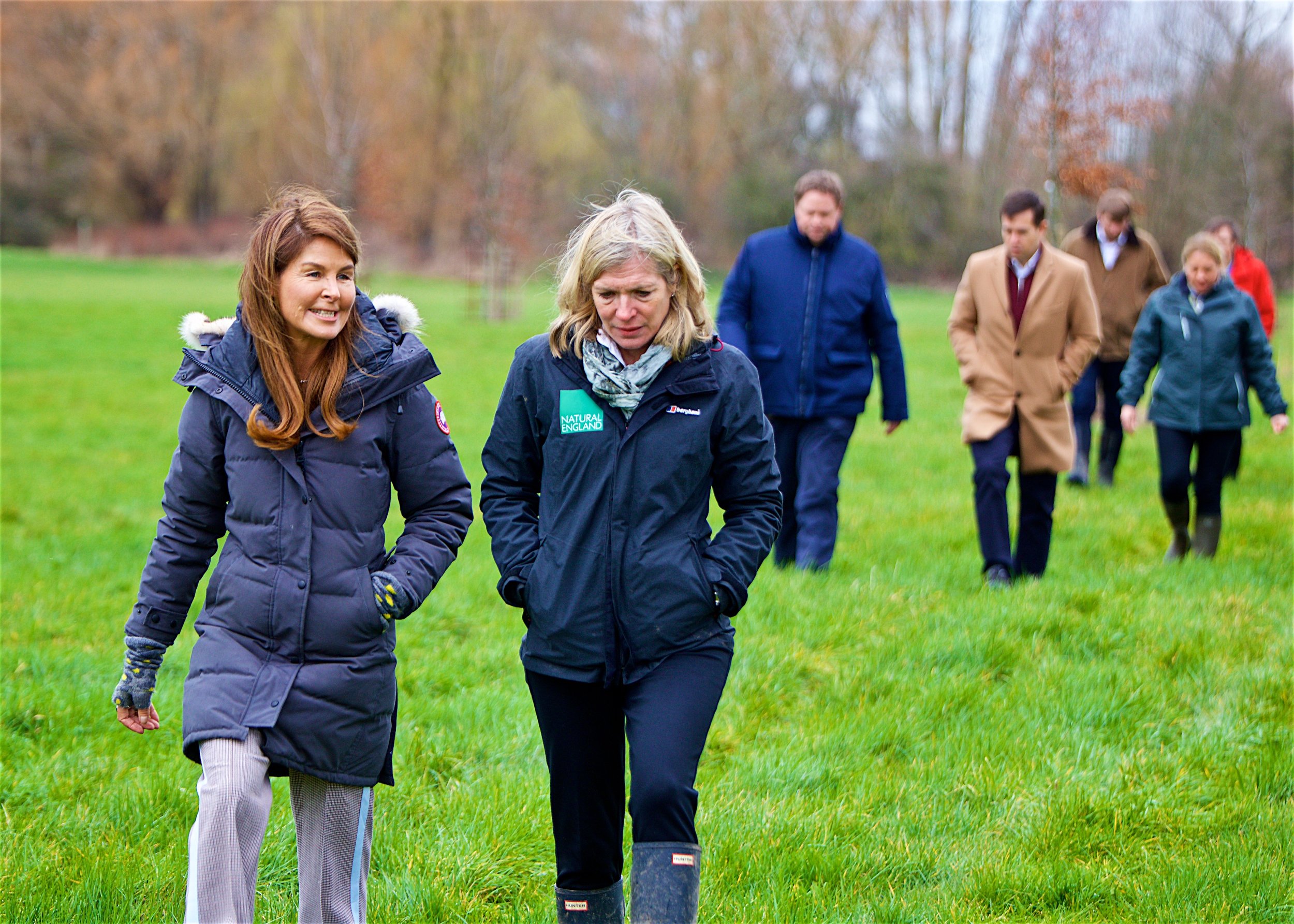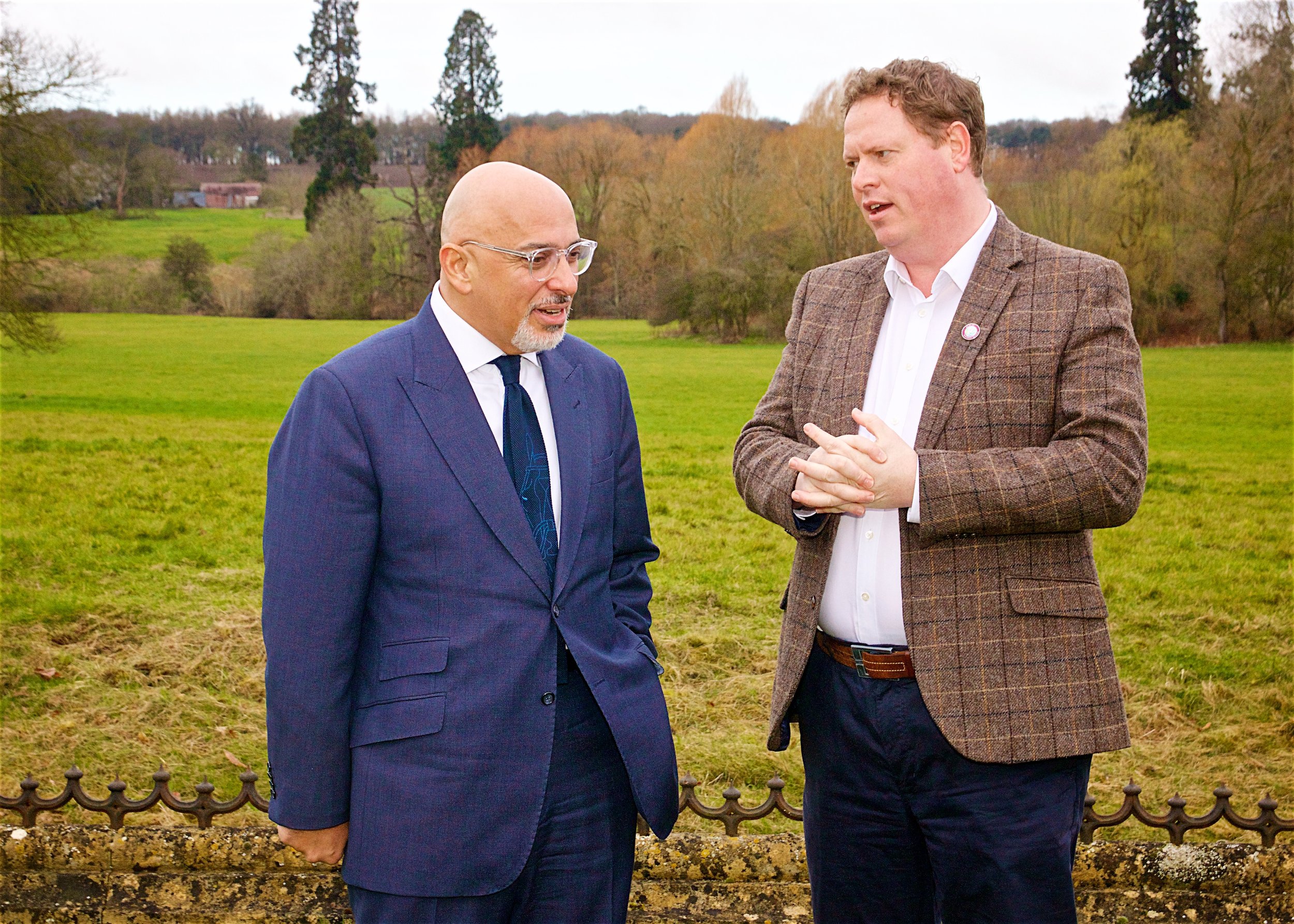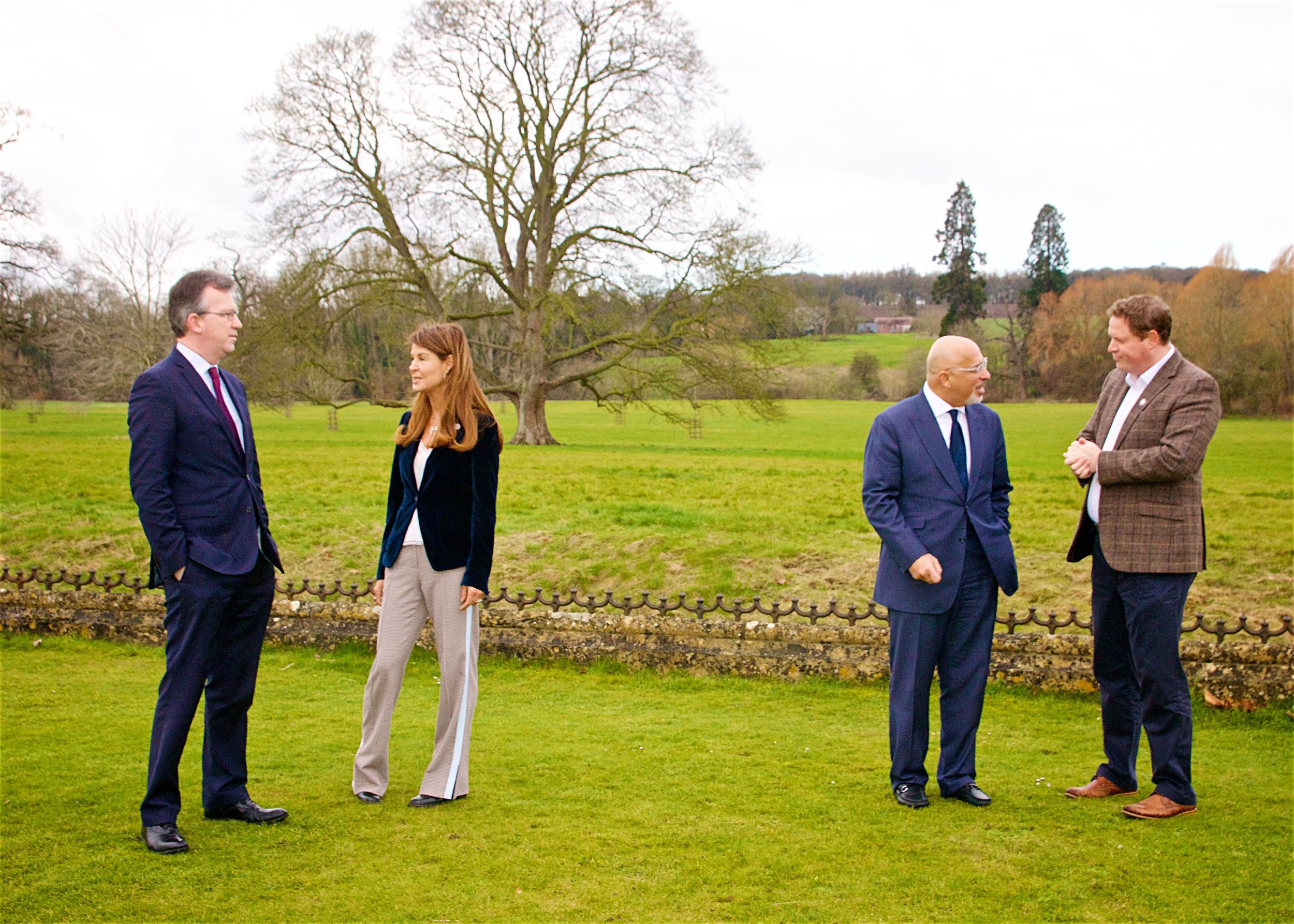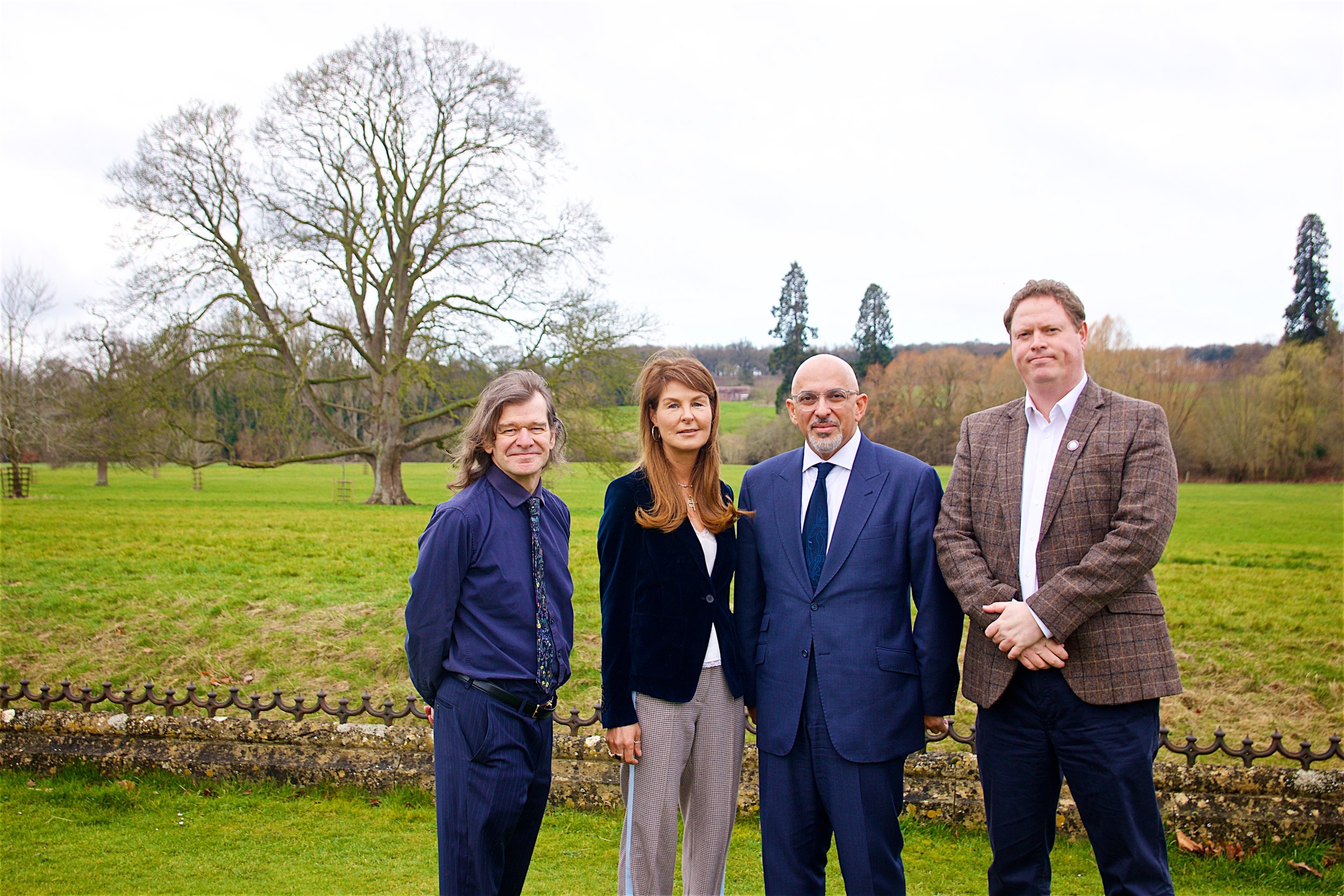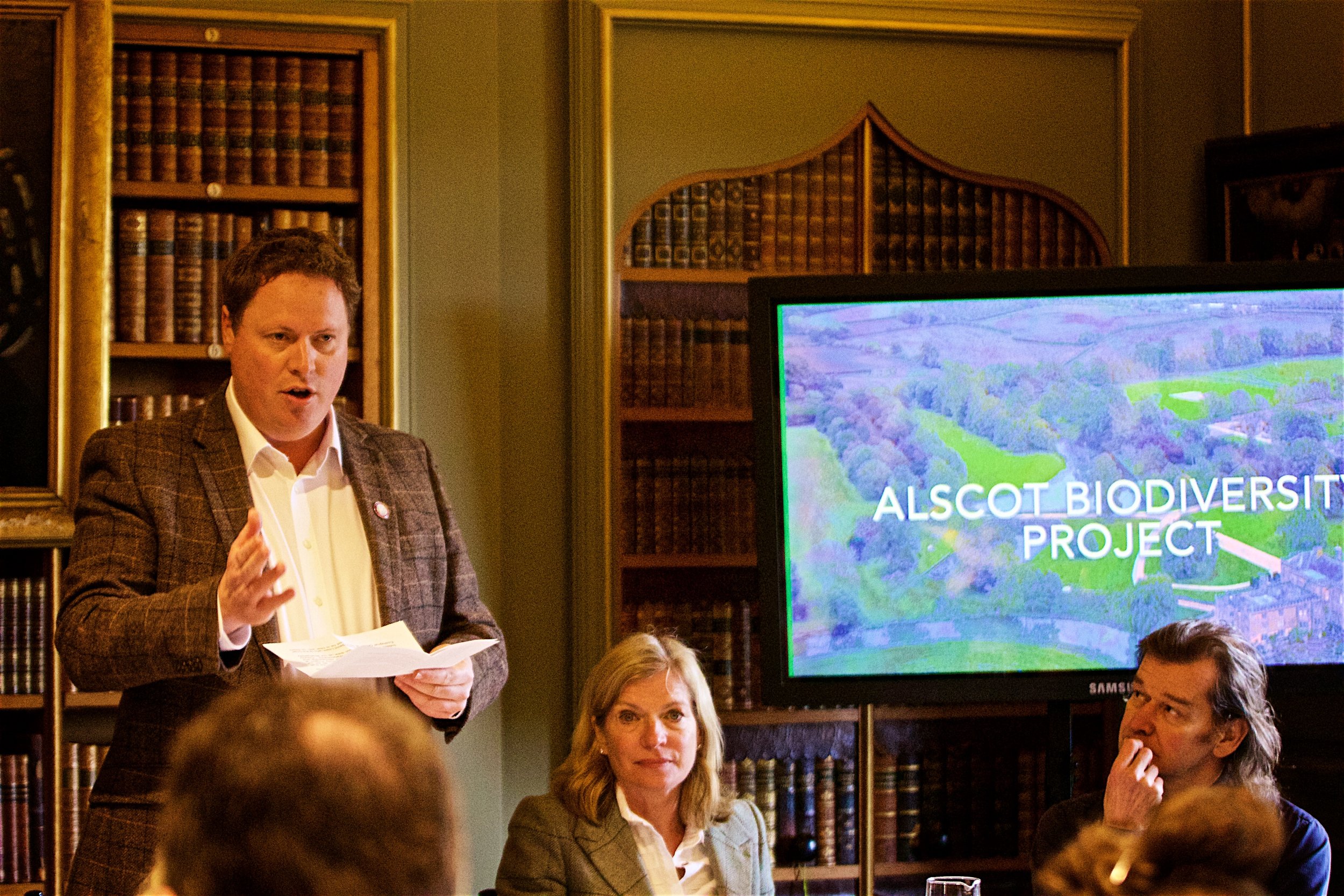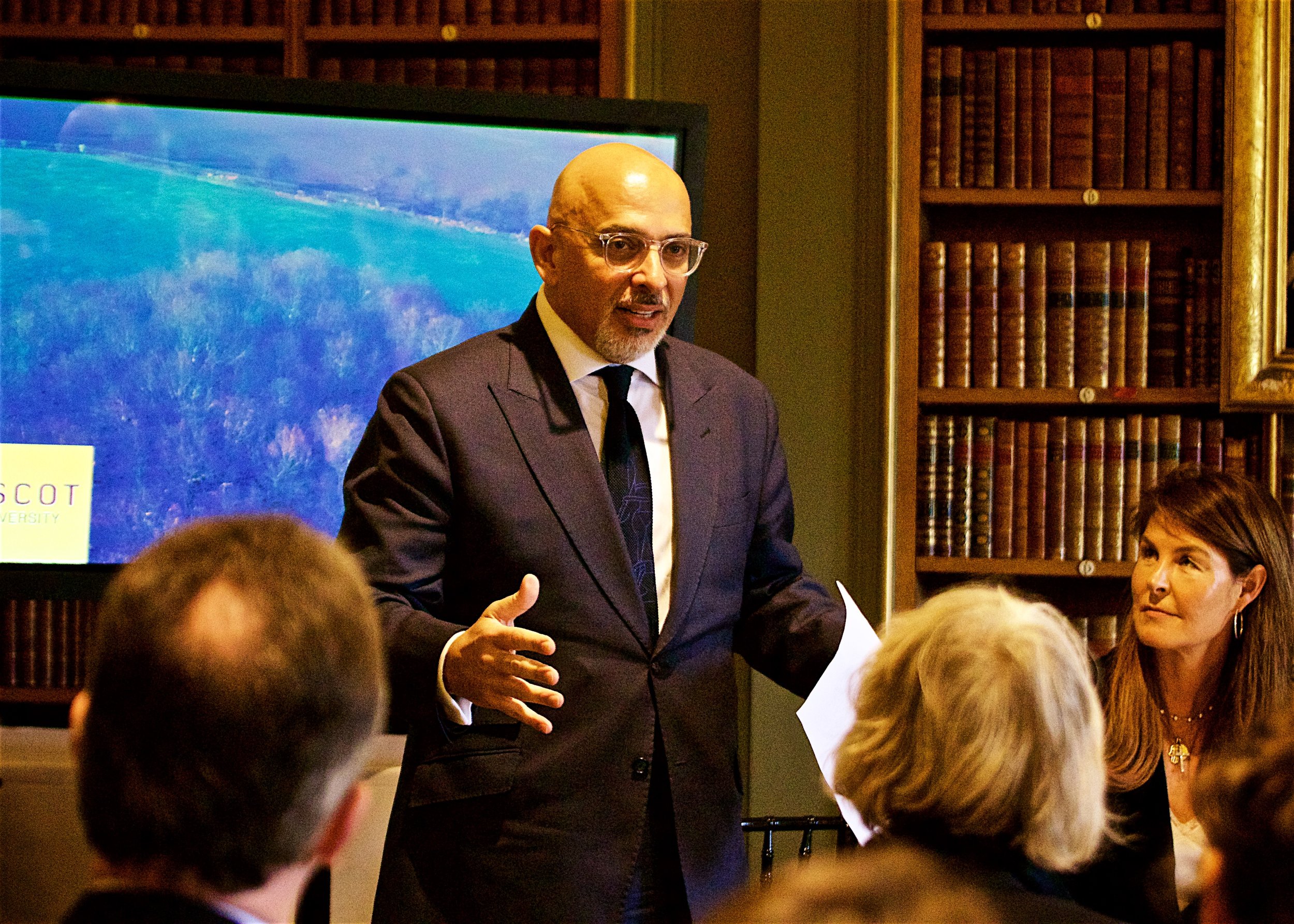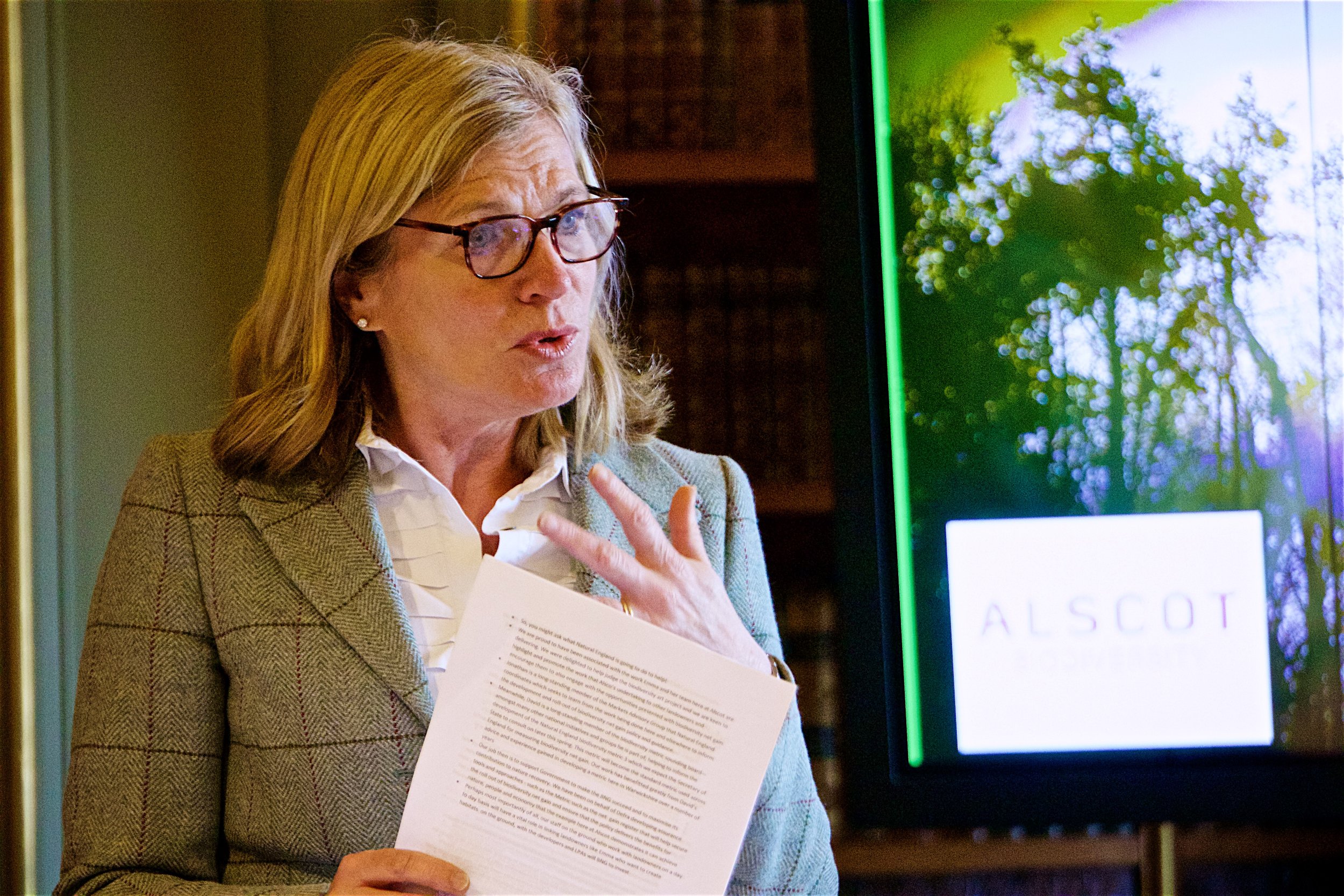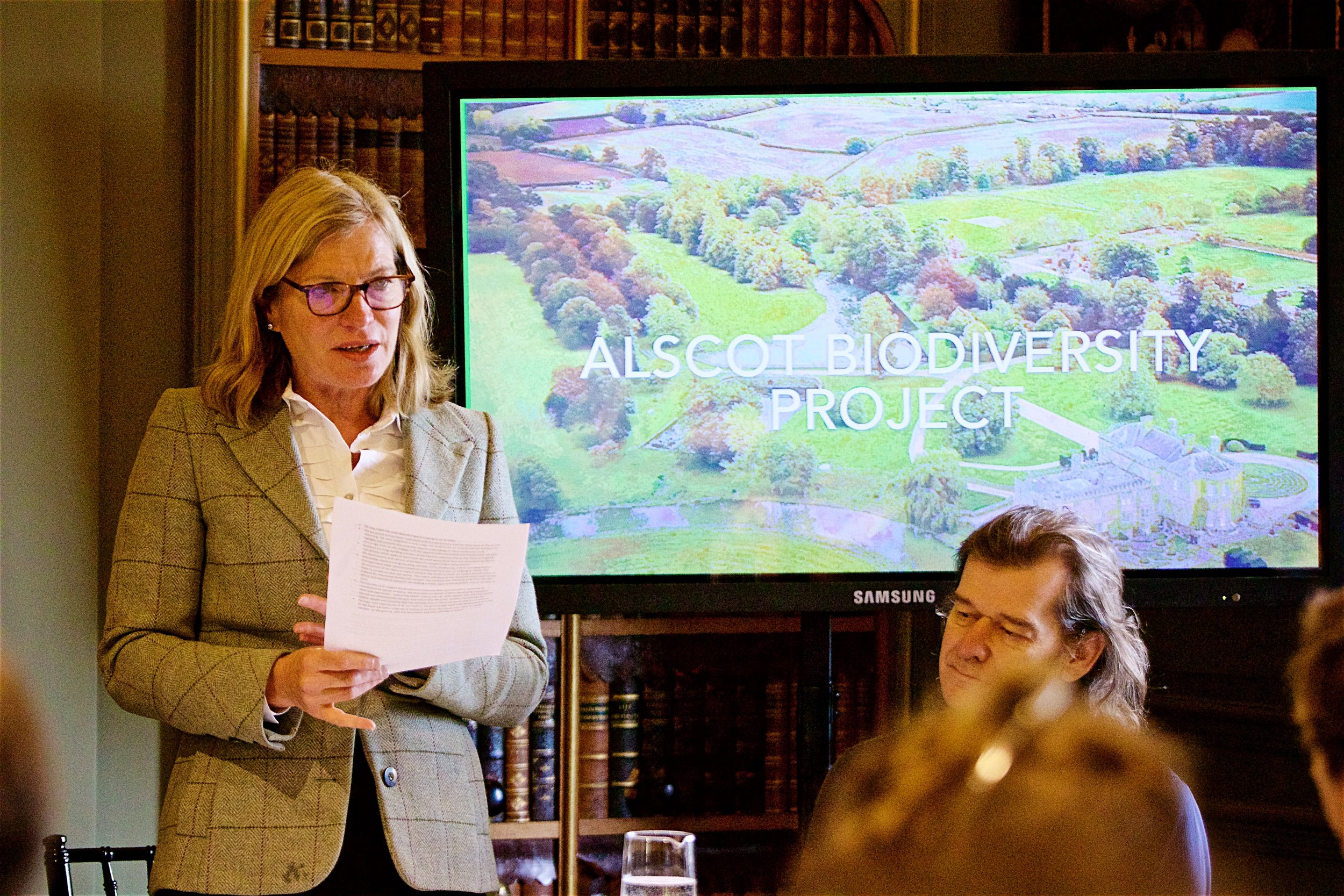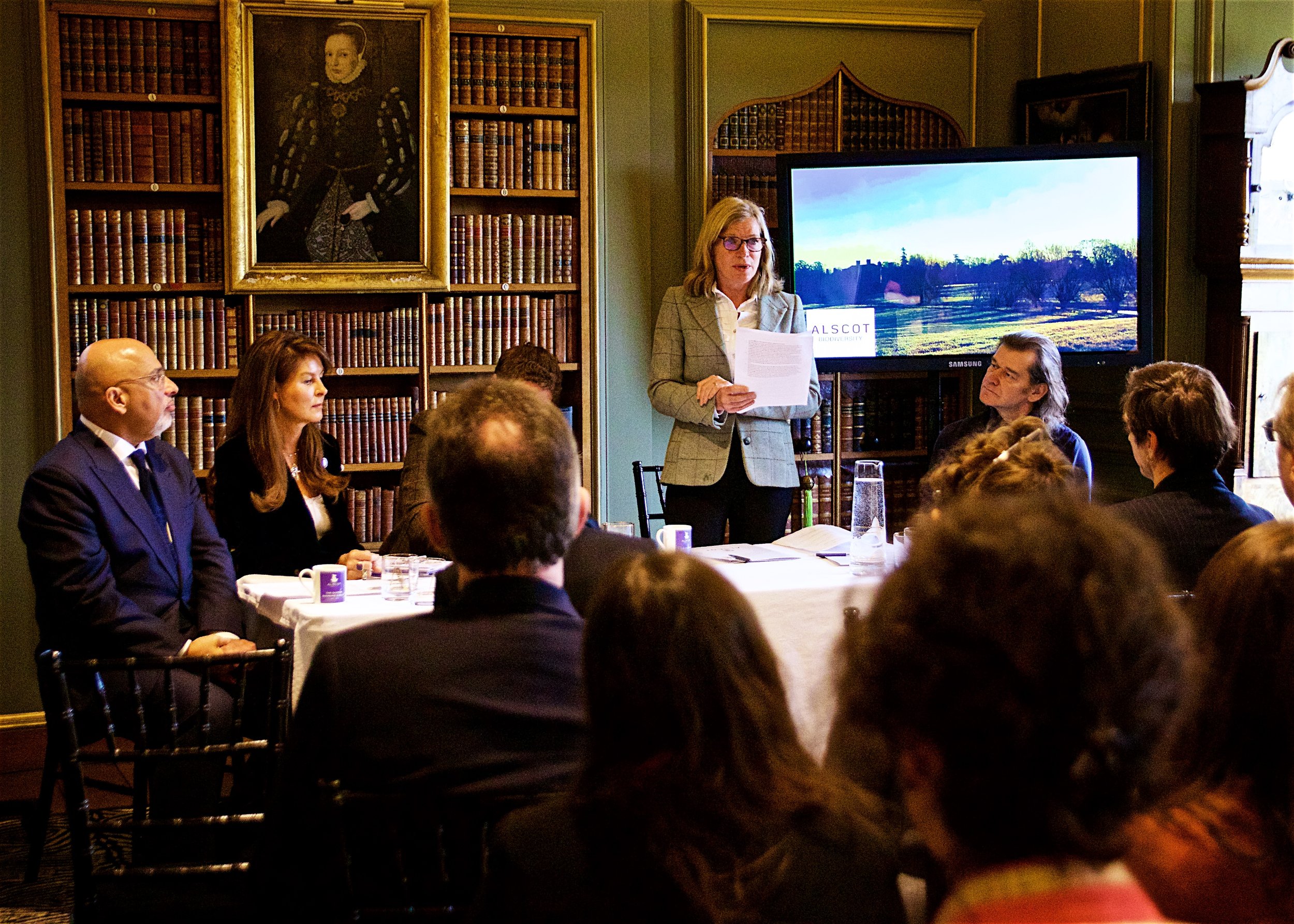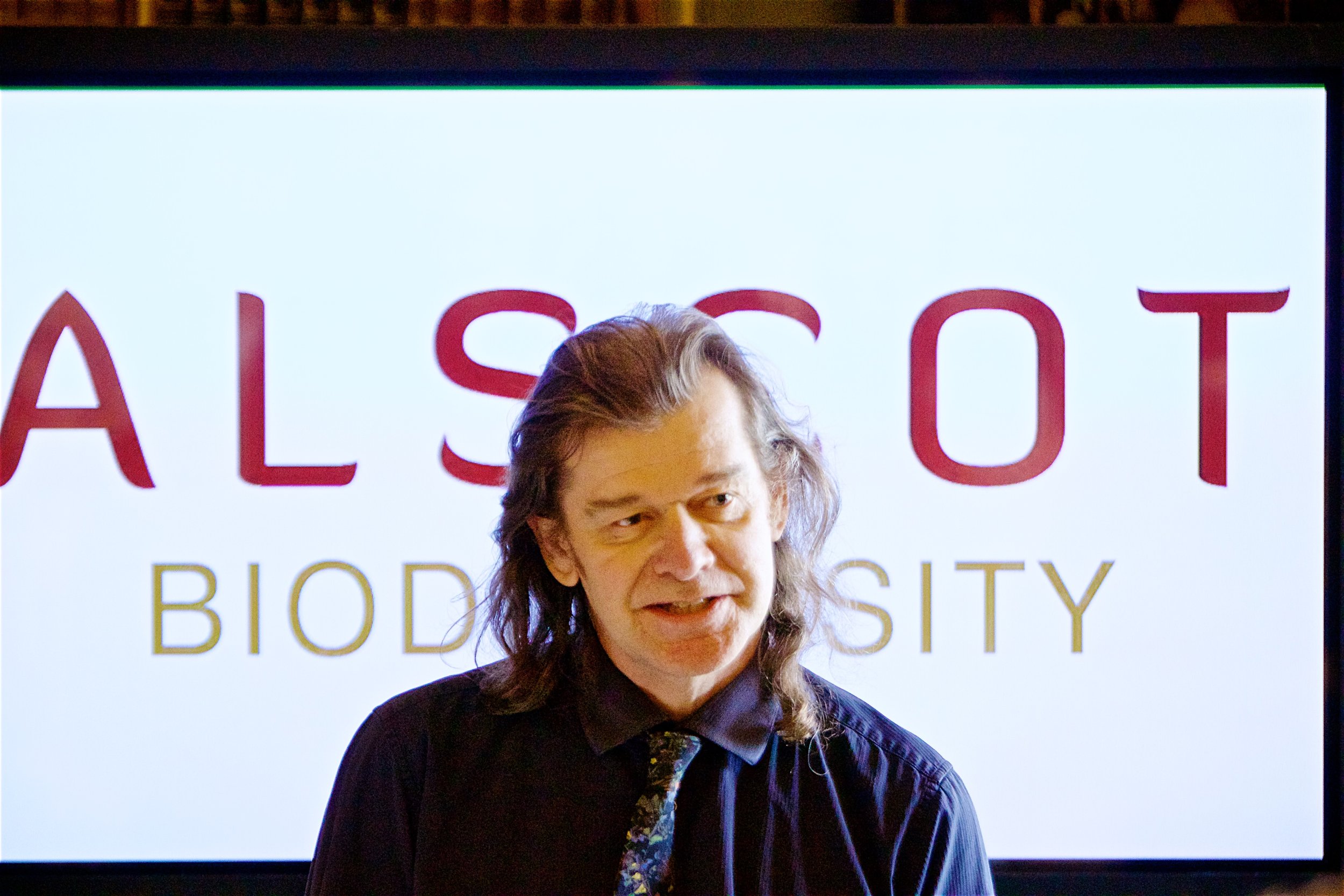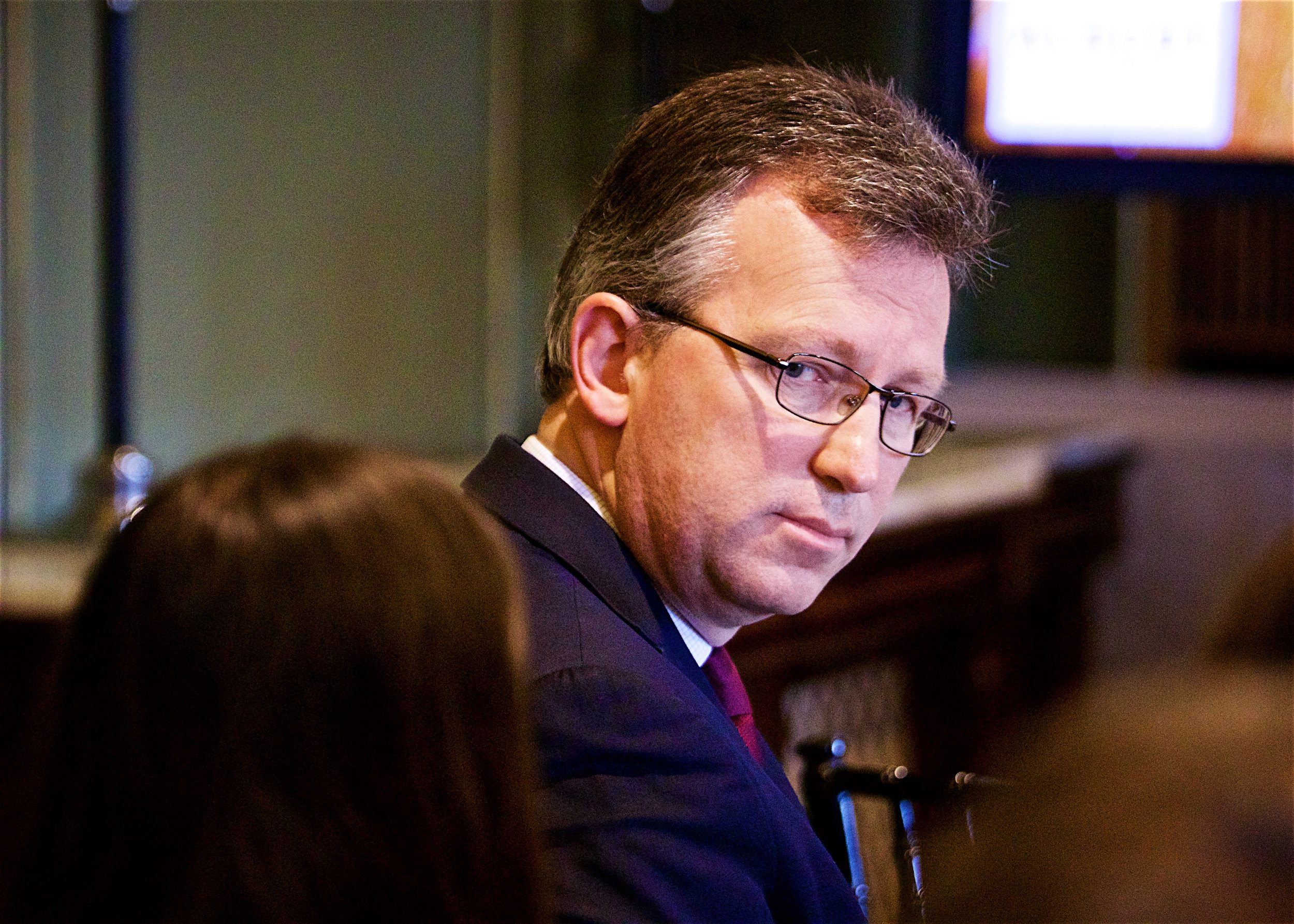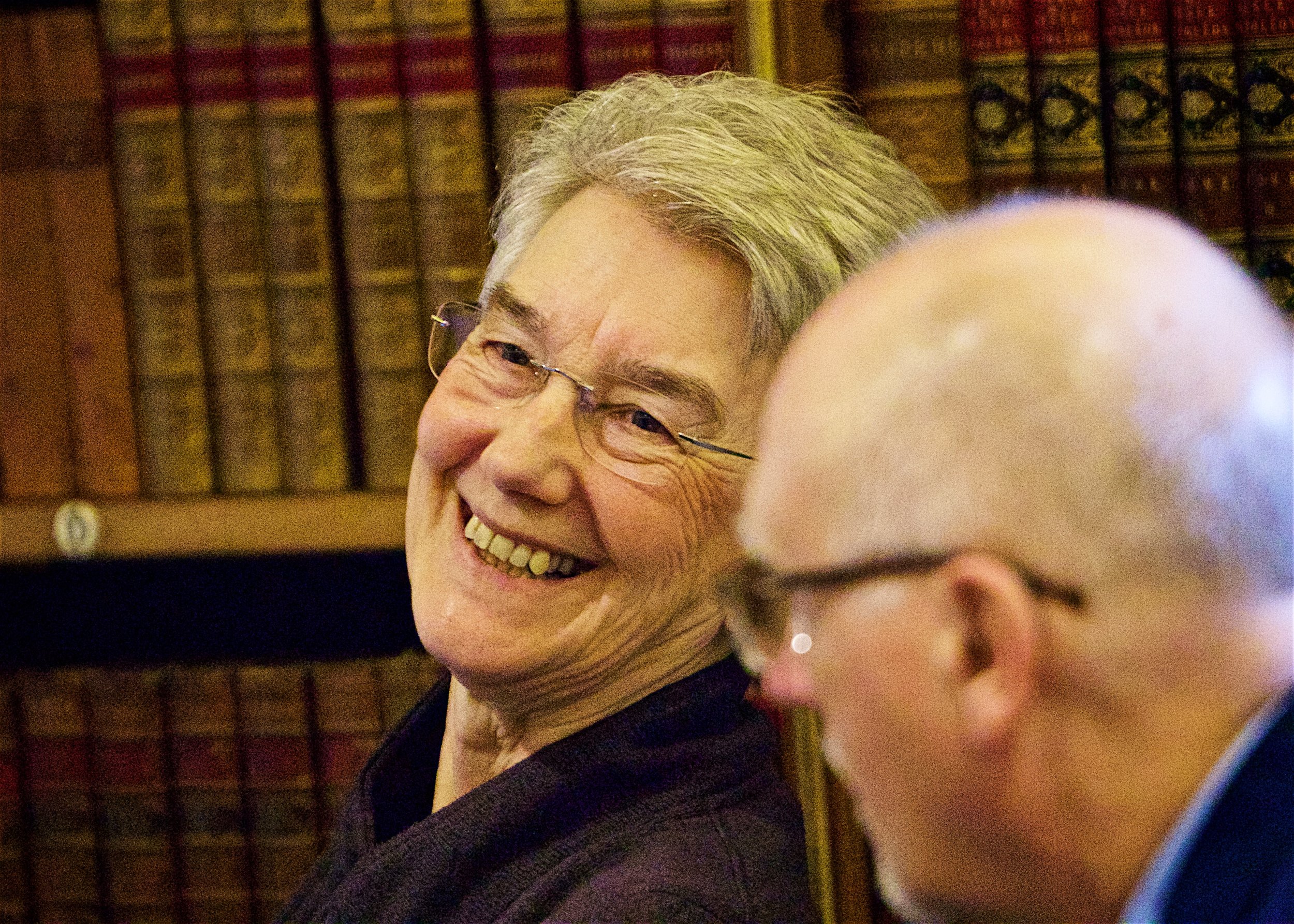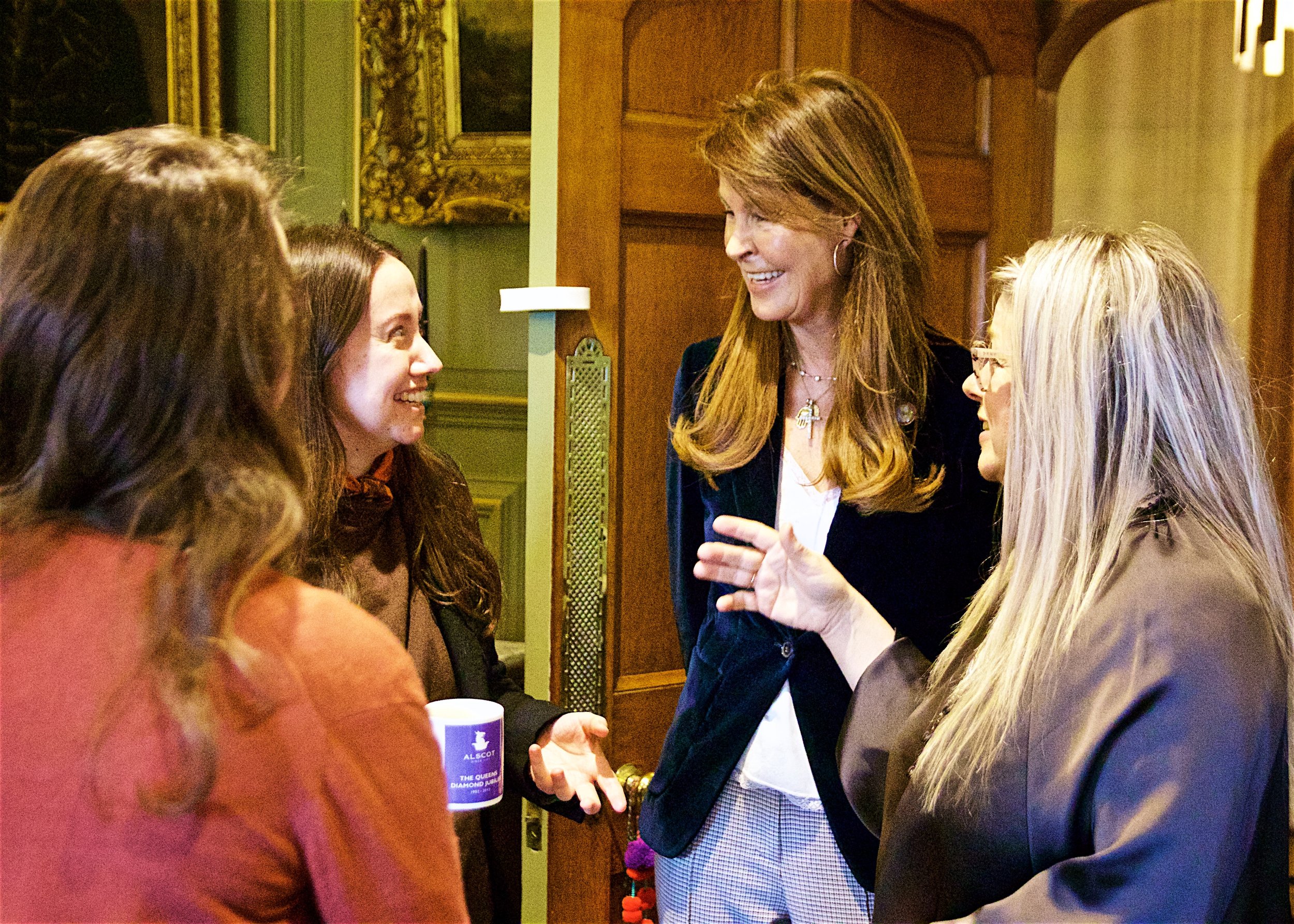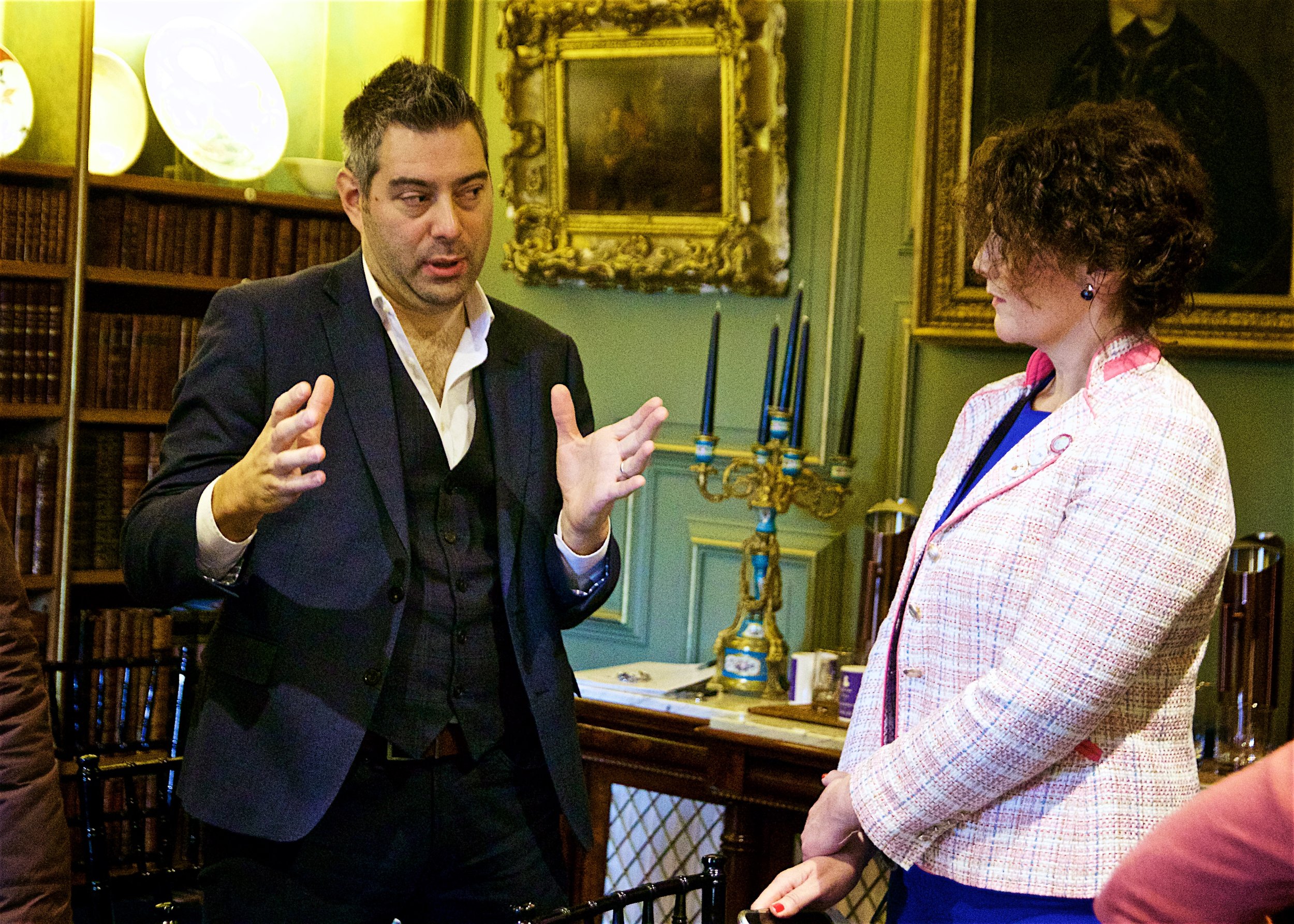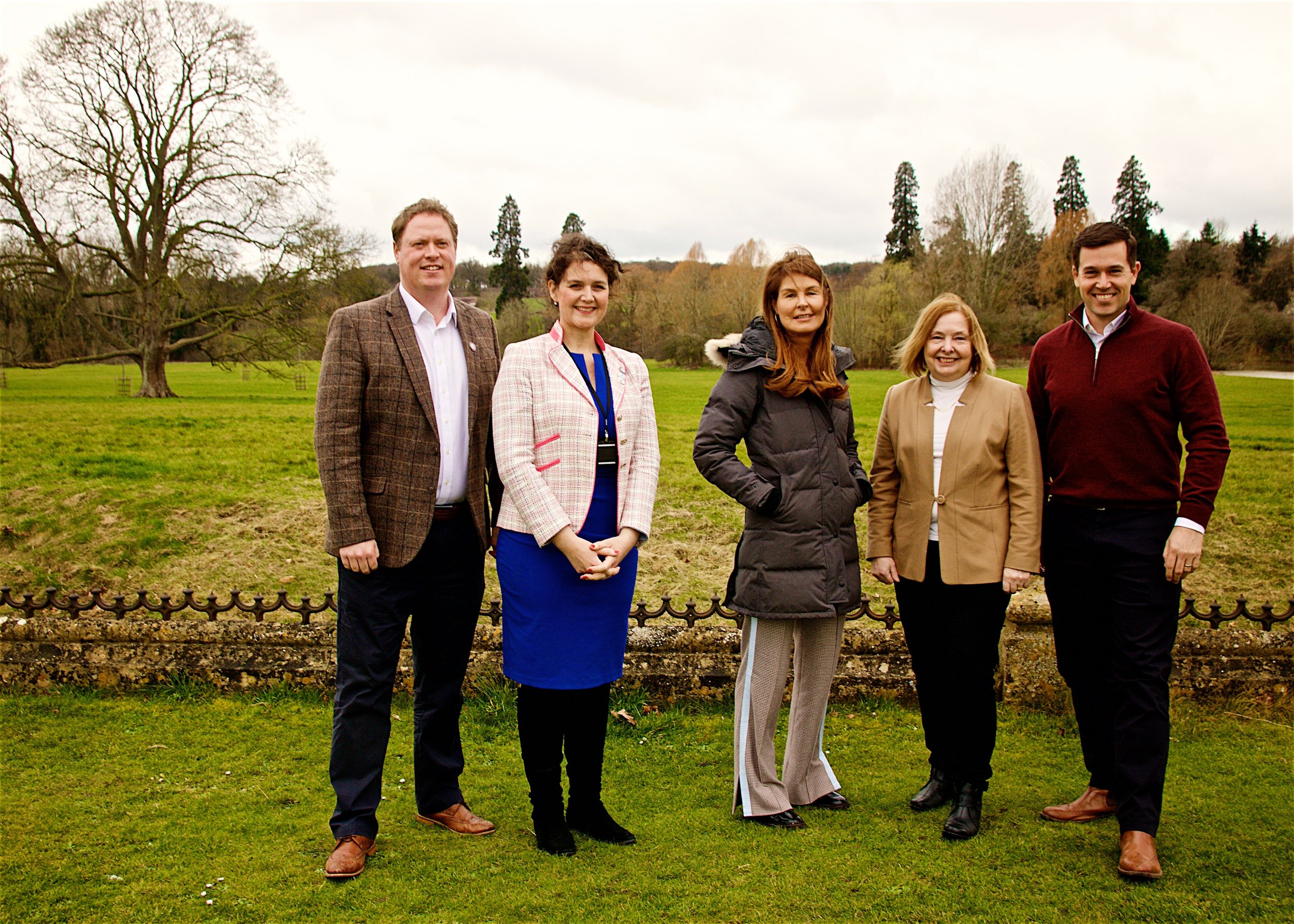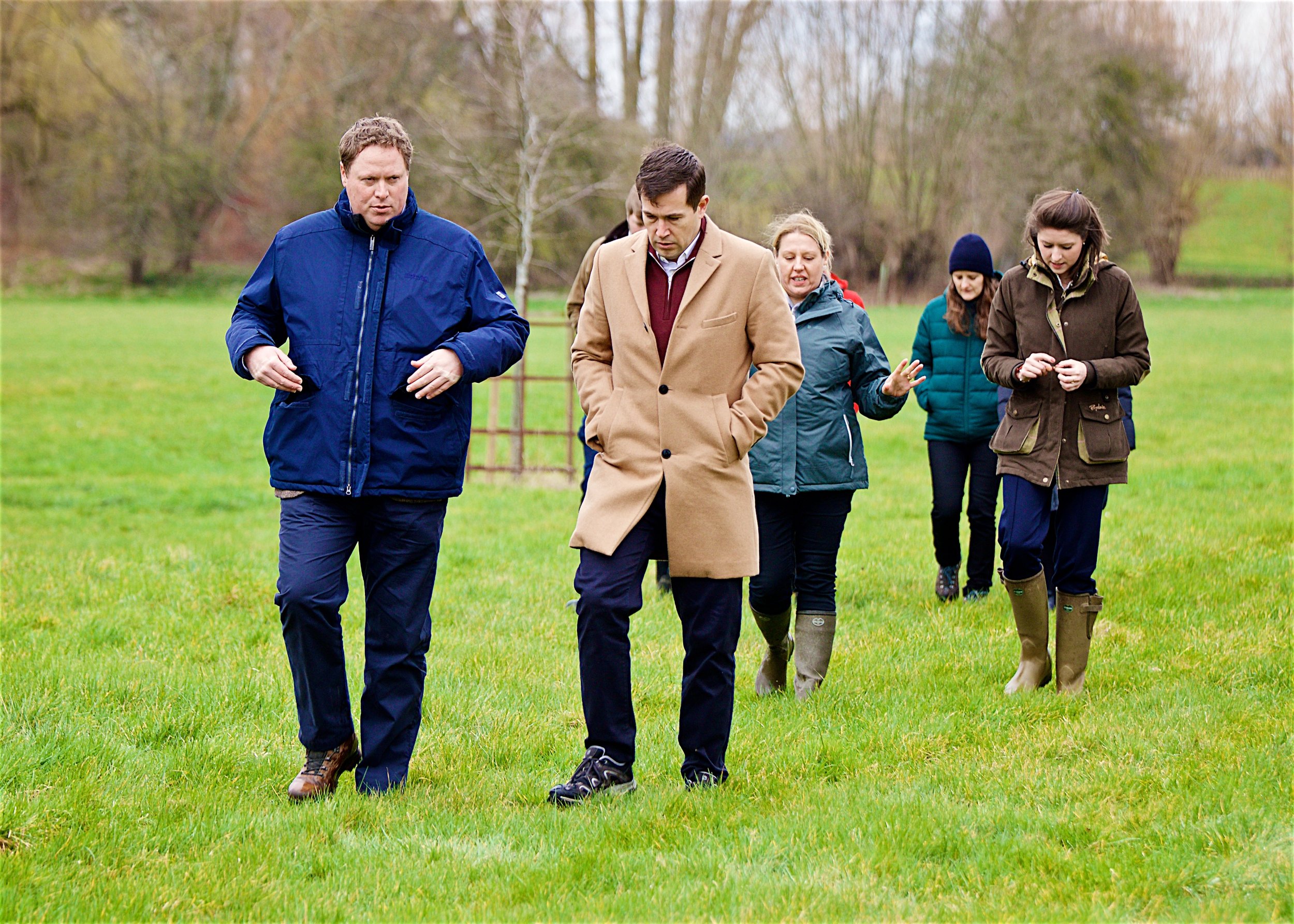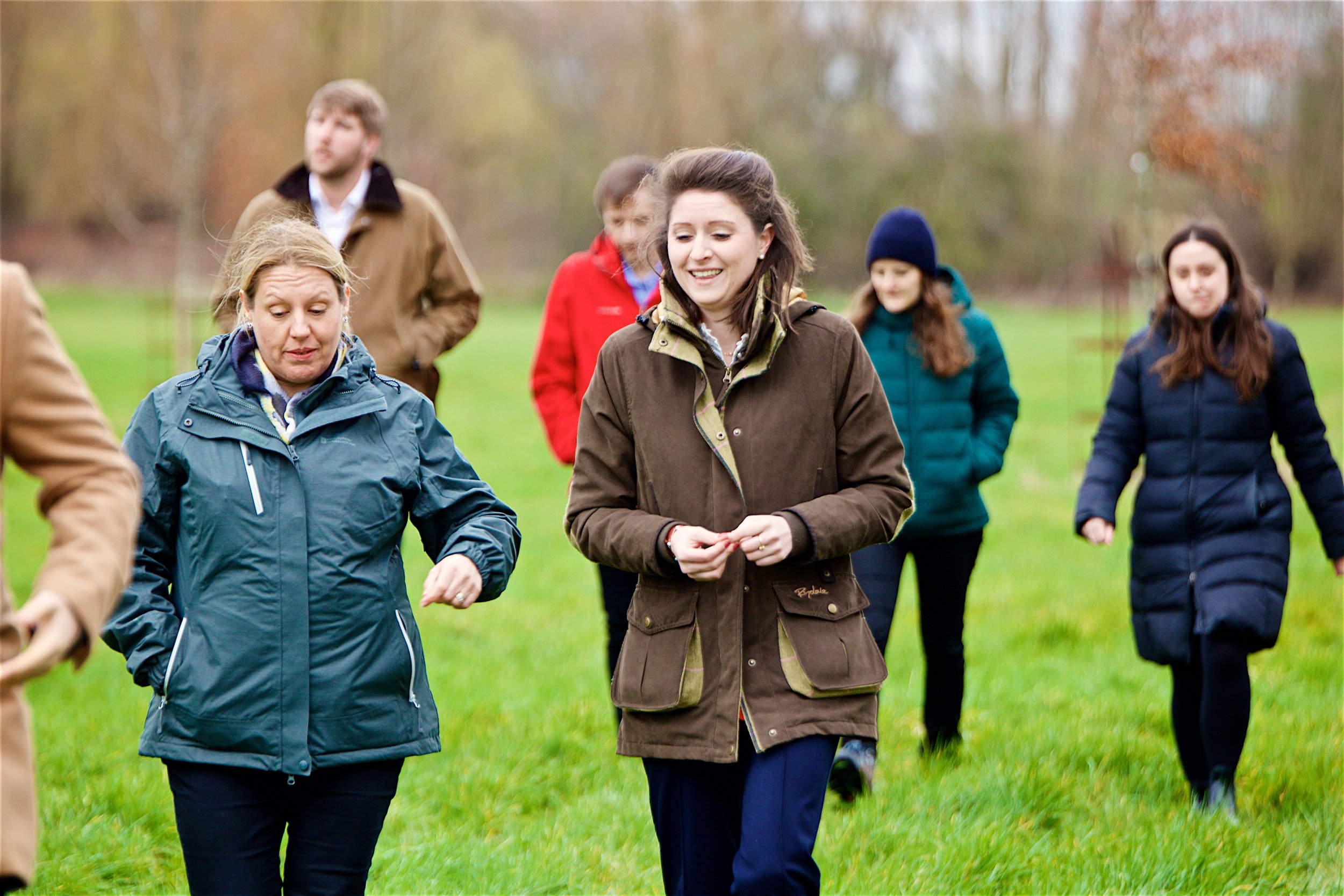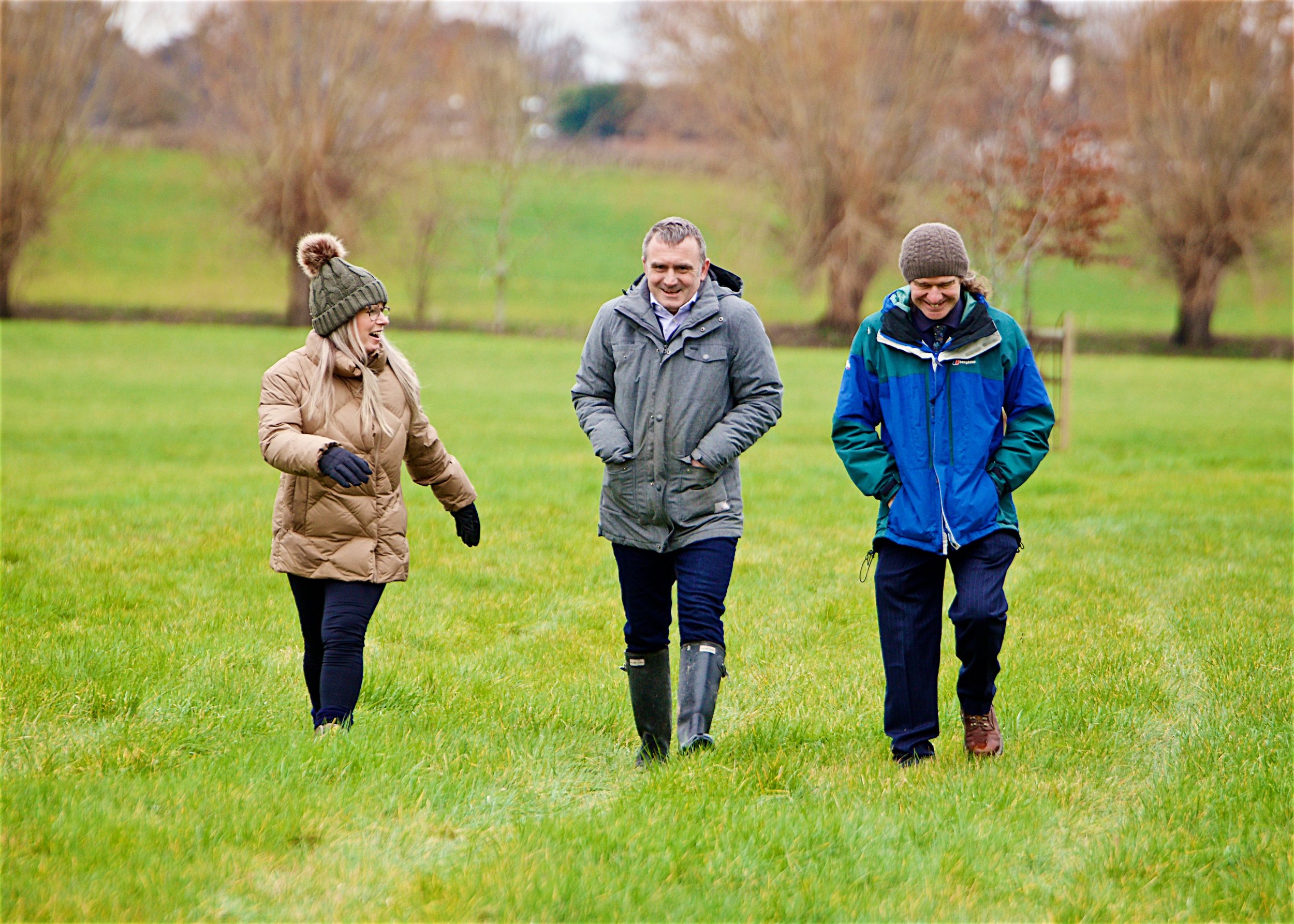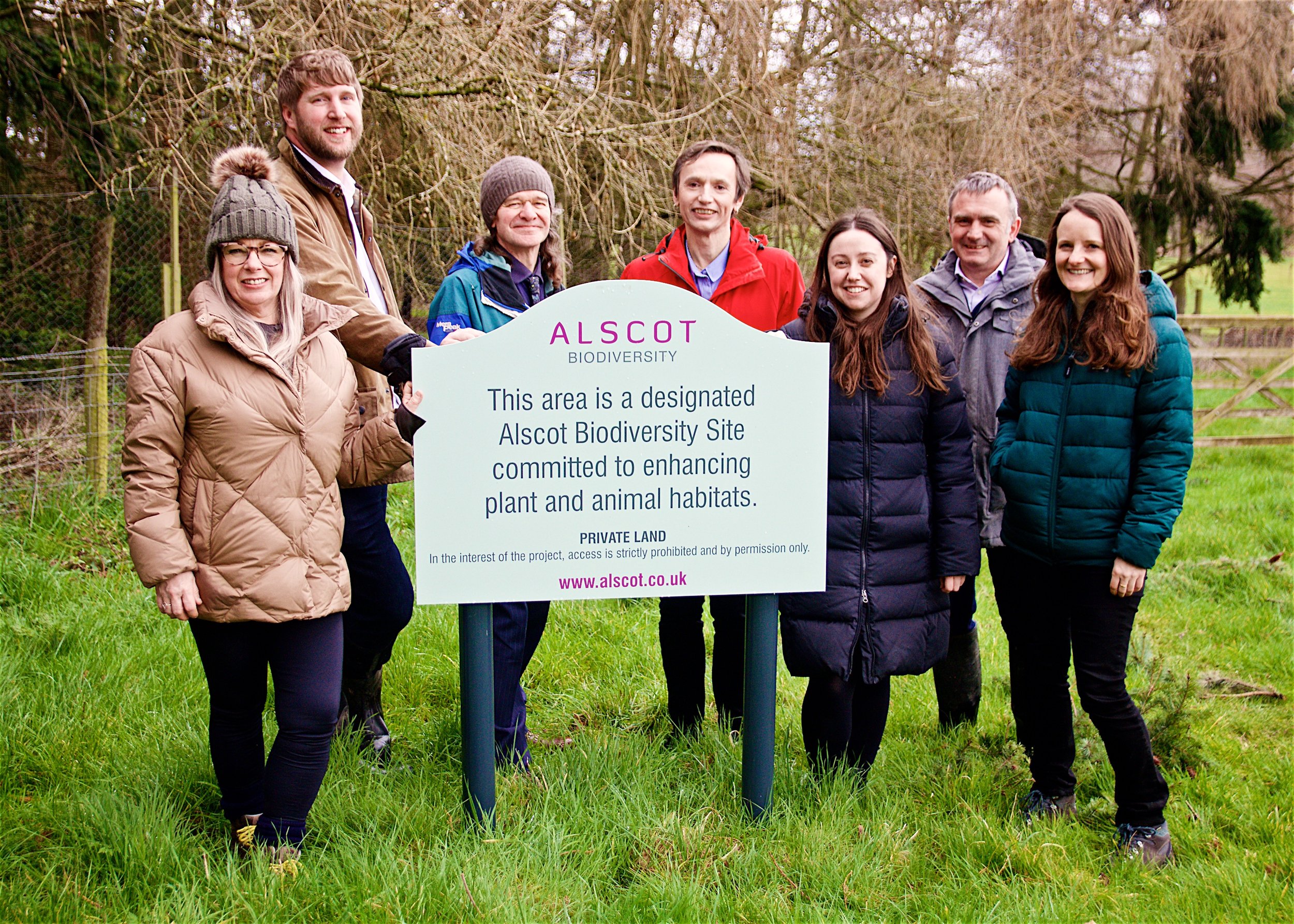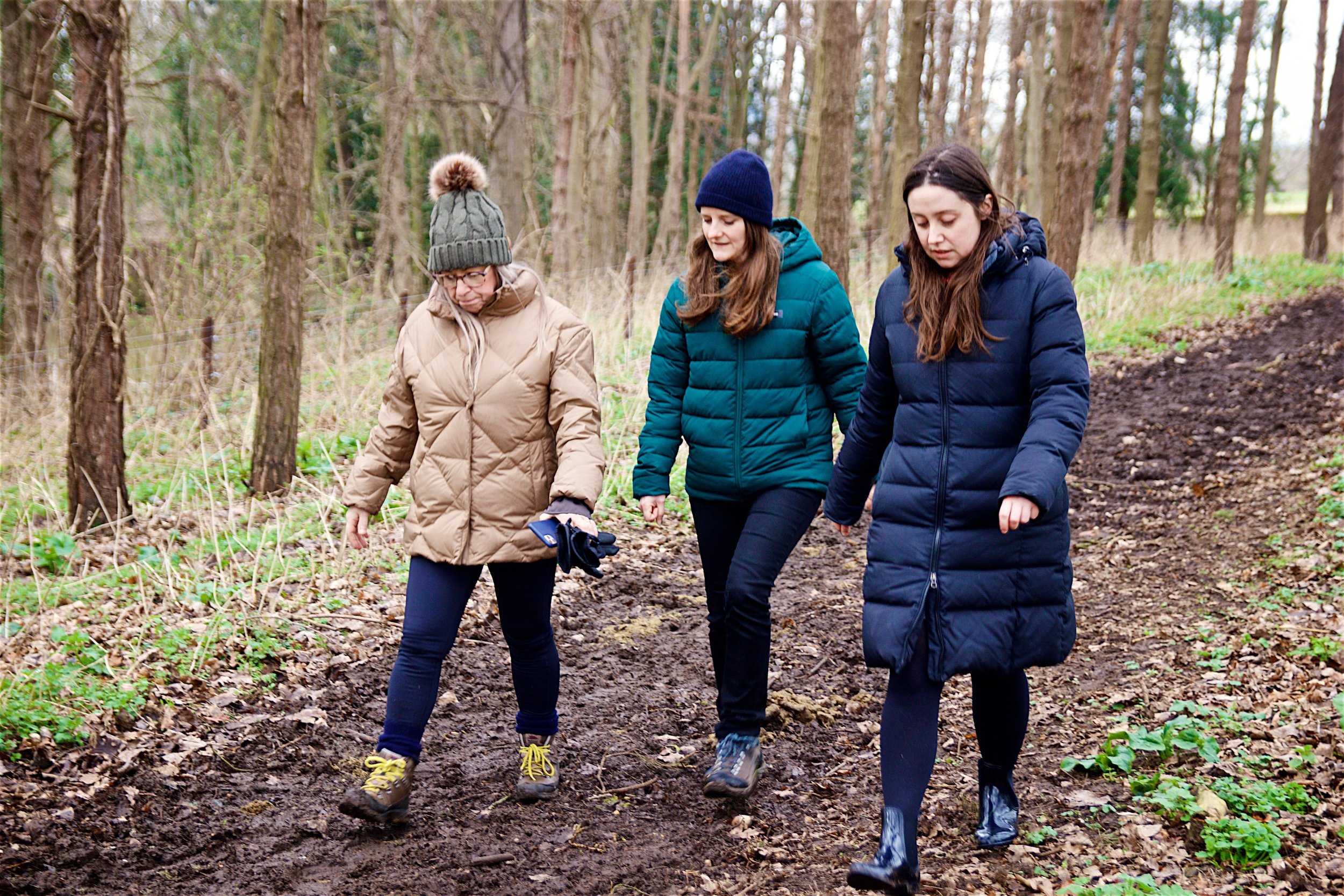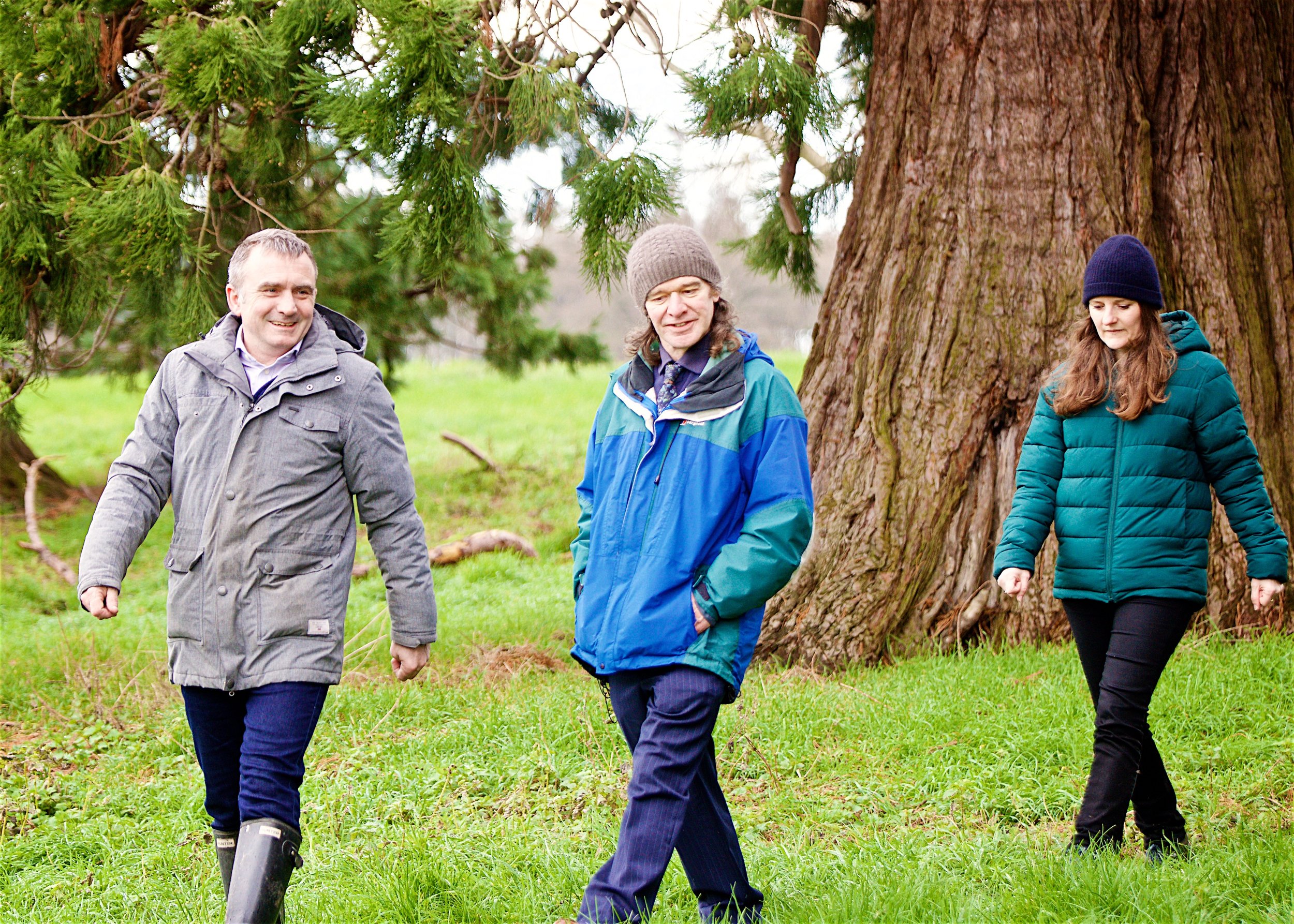Alscot Park was the venue on Friday 4th March 2022, for government ministers and officials and other leading industry representatives, to come together and discuss Biodiversity Net Gain at Warwickshire’s first major private project site.
Nadhim Zahawi MP, Secretary of State for Education, speaking at the event within his constituency to introduce the Alscot Biodiversity Project, said, ‘‘It’s great to see and be introduced to this exciting project today in Stratford upon Avon. We are blessed with some of the most beautiful countryside in the world and it is important that we ensure it is protected whilst simultaneously encouraging the growth needed to improve the day-to-day lives of people in the area. It is clear BNG has the potential to deliver sustainable development and housing with the support of local communities.”
Biodiversity Net Gain (BNG) often referred to as biodiversity offsetting, is where conservation activities compensate for biodiversity loss in a measurable way, leaving the natural environment in a better state than it was previously. BNG is compensation for habitats and species lost to development, with habitat creation taking place in another area. This policy is part of efforts to make sure the wider environment’s biodiversity levels are unaffected by construction developments and thus allows economic activity to occur whilst the environment continues to flourish.
Mandatory net gain, informed by the Defra 3.0 Biodiversity Metric, sits within the Environmental Act and some local planning authorities have already imposed the requirement set out in the BNG consultation. It is a minimum requirement of 10% for applicable development types to assist with efforts to reverse biodiversity decline. Warwickshire County Council was pioneering in the approach that requires developers, operating in Warwickshire, to achieve a 10 per cent net gain, even though the legislation mandating it in the rest of England was only received in Parliament in November 2021. Until now, there has been no statutory requirement for developments to deliver BNG, although the protection of the environment has remained as one of the main objectives in the national planning policy. The Act changes this now in a positive way.
Not all development sites can mitigate the loss of environmental value on the same site as the development and this is when they look to landowners. This is known as Mitigation Hierarchy.
In early 2020 in a landmark deal, Alscot Biodiversity Project was one of the first private ventures of its kind in the UK, to work-up a detailed legal agreement with Warwickshire County Council to offer BNG units to developers.
A BNG unit is measured, by using the Defra 3.0 Biodiversity Metric, the proportion of land in any given location that will see improvements made to its green spaces. The metric is a habitat-based approach used to assess an area's value to wildlife. The metric uses habitat features to calculate a biodiversity value. e.g. species-rich grassland is more valuable than species-poor grassland. The metric is used by ecologists, planners or developers carrying out a biodiversity assessment on land.
Alscot was at the forefront of this revolutionary approach and following on from numerous surveys to form a Biodiversity Net Gain Management Plan (BOMP), carried out by a specialist firm of ecologists that was subject to approval by the local planning authority, Alscot has been following a strict 30 year biodiversity management plan which scales 20ha of farmland. Through careful management and investment, the objective of the project is to work to secure a future for plant and animal species by the improvement and enhancement of natural grasslands and woodlands, encouraging rare and almost extinct species to thrive. Contractual obligations ensure that the BOMP is accountable, and this is done by regular monitoring visits to site and the submission of an annual detailed report prepared by competent ecologists.
Emma Holman-West commented, “it is really exciting, yet challenging, to be at the forefront of such a revolution. The objectives of this project tie in perfectly with our 50 year Estate business plan and our aim for carbon neutrality by 2050.
I discovered the concept of BNG by accident whilst searching for ways to improve our green spaces. I was working on a project to reinstate historic parkland at the time, and I was reading a lot about trees and green canopies. Whilst researching I discovered a book about rewilding, and I was fascinated by the approach. At the same time, I received an invitation by Westminster Briefing, to a biodiversity seminar where David Lowe, Head Ecologist at WCC, happened to be speaking about the BNG consultation and WCC’s leading part in the pilot project.
BNG is a new concept for landowners, with several risky unknowns, for instance a 30year investment commitment. For now, this diversification project fits into our 50yr long-term strategy, and having green aspirations I aim to move forward by introducing connectivity with a second phase, enabling us to sustain a commercial business and improve our green spaces within the community for future generations”
Speaking at the event to leaders of Stratford upon Avon and Warwick District Council, Warwickshire County Council and other industry specialists, Marian Spain, CEO, Natural England, spoke passionately about her views and devotion to conservation, environmental protection, and sustainable development. Fellow colleague and Principal Biodiversity Net Gain Advisor for Natural England, Nick White, who works with all sectors to advance policy, practice, and standards around BNG, took part in a valuable question and answer session.
Jonathan Thompson, who assists Alscot in their biodiversity planning and brokerage of assets, explained “The 20ha of land included within this project is enabling somewhere in the region of 300-400 houses to be built in Warwickshire, allowing economic development in the area without any loss to biodiversity. As one of the leading private projects of its type in the country, Alscot has put BNG on the map and it has attracted a phenomenal amount interest, including that of, Rebecca Pow MP, Parliamentary Under Secretary of State at the Department for Environment, Food and Rural Affairs, and Member of Parliament for Kenilworth and Southam, The Rt Hon Jeremy Wright, who was amongst those in attendance at Alscot Park. Investing in nature’s recovery is a vital national priority.”
Alscot have added a voluntary arm to their project and actively collaborate with local primary schools (curricular and non-curricular) to encourage environmental understanding through practical activities on site. The Alscot Biodiversity Education project is proving to be highly successful, with seven local primary schools already actively engaging with the Estate, in different environmentally friendly activities and Stratford-on-Avon’s MP supports this initiative.
Ends
See the video Here
